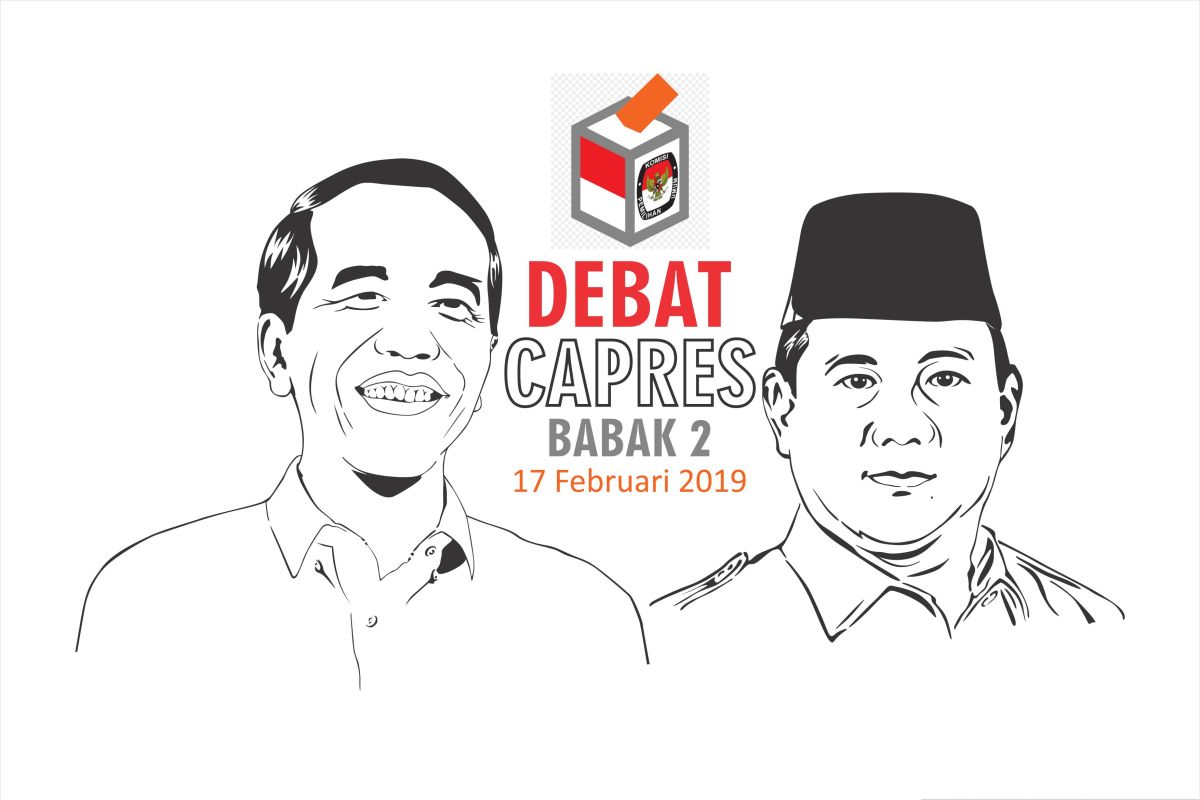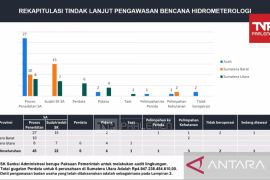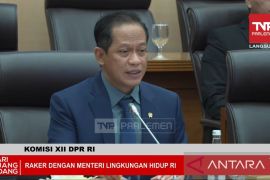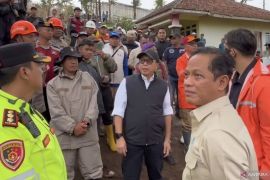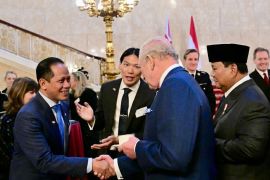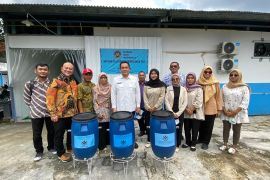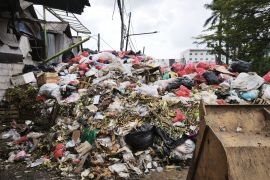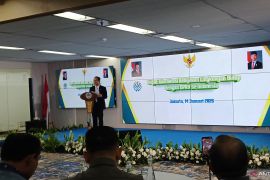Incumbent Joko Widodo (Jokowi) and his challenger Prabowo Subianto discussed five themes, namely food, energy, infrastructure, natural resources, and the environment, chosen by the General Election Commission, during the debate, but they failed to see a common thread of the five themes, as they treated each theme separately.
Besides, they were seen as lacking substantive plans offered in their debates.
During the debate, Subianto vowed to take stern measures against companies that caused environmental damages if he is elected president for the 2019-2024 term.
"If I am given the mandate to lead the government of the Republic of Indonesia, I will certainly enforce the law. Stern law enforcement is a must against companies that do not implement the regulation," Subianto stated, emphasizing on firm legal enforcement to protect the environment.
Subianto also promised to tighten the requirements for environmental impacts assessment and stated that there would be no short cuts to obtain project licenses.
"This is, again, a matter of commitment. I will uphold a clean government that will not be collusive with environmental violators," he added.
If he is elected president for the 2019-2024 period, he would reorganize the Ministry of Environment and Forestry and separate it into the Ministry of the Environment and the Ministry of Forestry.
Responding to Subianto?s statement, Jokowi remarked that his administration has sanctioned 11 companies involved in forest and land fires in Indonesia. The total sanction amounted to Rp18.3 trillion.
According to Jokowi, the government has been successful in overcoming forest and peatland fires in the past three years by strengthening the law enforcement.
He also stated that the current administration had started to clean polluted rivers, including one in Citarum River of West Java.
Jokowi also vowed to reduce fossil fuel consumption by encouraging the use of more biofuel and green fuel.
The government has begun production of B20, a blend of 20 percent of biofuel with diesel, and it would proceed with the production of B100, which contains 100 percent of biofuel, he explained.
Commenting on the substances of the debate, an NGO activist viewed that both candidates failed to make environmental issues a focus of their statements.
"Both candidates still view the issues of food, energy, infrastructure, natural resources, and the environment as separate issues," Anggalia Putri, manager of knowledge management of the Madani Sustainable Foundation, revealed on Feb 18, 2019.
They failed to see that the environment correlates with other issues and is even a major engine of the issues, she added.
Jokowi emphasized on various policies, programs, and projects concerning the five themes of the debate. However, he did not elaborate much on the basic problems and the solutions, according to the NGO activist.
"The discussions treat the five themes separately, as if they have no correlations with each other," she stated.
Meanwhile, Subianto used populist words, such as independence, self-reliance, and national ownership versus foreign ownership.
"But, he did not explain about the concepts on how to achieve food self-reliance and others," she added.
The two candidates also did not mention about deforestation, forest degradation, and environmental rehabilitation during the debate, she stated.
Another criticism came from the Indonesian Environmental Forum (Walhi), which expressed disappointment with the candidates for failing to mention the climate change impacts and forest issue.
"It is a bit awful because climate change impacts and forest issues were not mentioned," Yuyun Harmono, campaign manager for climate justice of Walhi, revealed.
The climate change is in fact an issue that covers every aspect, he noted. It is quite scary, from the climate change context, to learn about the optimism of both candidates over oil palm plantation, he revealed.
Oil palm plantation and coal mining activities are both major contributors to emission, he remarked.
If the two candidates still rely on oil palm and coal, it means they do not see the point of climate change, he added.
They fail to link the economic policy and efforts to control the impacts of climate change, he revealed.
"What worries me is that the Environmental Affairs and Forestry Minister has asked the Director General for Climate Change Control to review our Nationally Determined Contributions (NDC), in order to speed up the target to press the Earth`s temperature increase below 1.5 degree Celsius from 2020 to 2019," he explained.
The ministry has prepared measures for cutting emissions by accelerating mitigation efforts, he explained.
The ministry has realized that the major contributors to emission are plantation and energy-based factors, he elaborated.
However, he regretted that the two candidates failed to consider the crucial issue.
"No one related their economic policy to climate change issue. This is worrying," he stated.
The impacts of climate change are apparent in Indonesia, such as rising sea levels, change in precipitation patterns, decrease in agriculture and fishery production, and increase in drought, flooding, and some vector-borne diseases.
Meanwhile, Greenpeace Indonesia was concerned by both presidential candidates` emphasis on the use of crude palm oil for developing biofuels, because it potentially contributed to an increasing rate of deforestation.
Indonesia is one of the world`s largest biodiversity nations and has the world`s third largest forest areas. The country has several environmental problems, such as deforestation and marine pollution, due to plastic wastes.
The country`s forest conversion into oil palm plantation has become a spotlight internationally because Indonesia`s forest is considered as the `lung? of the Earth for its function to absorb gas emission that has induced climate change.
In September 2009, the then president Susilo Bambang Yudhoyono made a commitment to reduce gas emissions by 26 percent of business-as-usual levels by 2020. But with international support, Indonesia can reduce emissions by as much as 41 percent.
Indonesia will hold the simultaneous legislative and presidential elections on April 17, 2019.
Editing by Suharto
(
Reporter: Fardah Assegaf
Editor: Suharto
Copyright © ANTARA 2019
